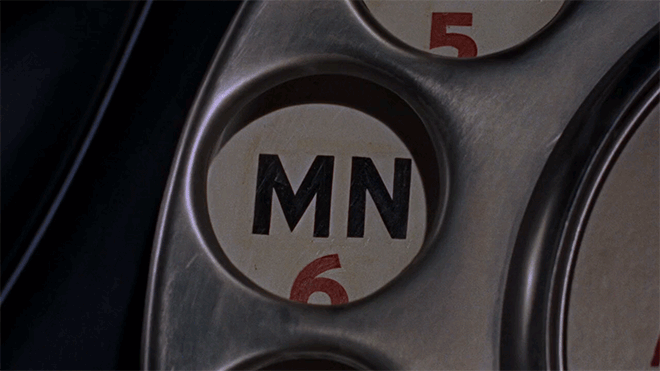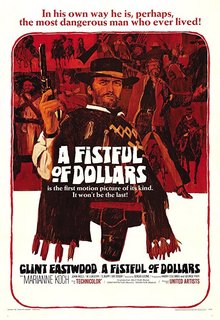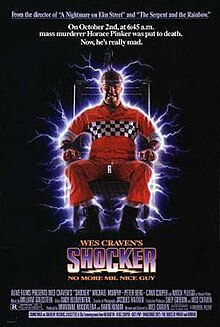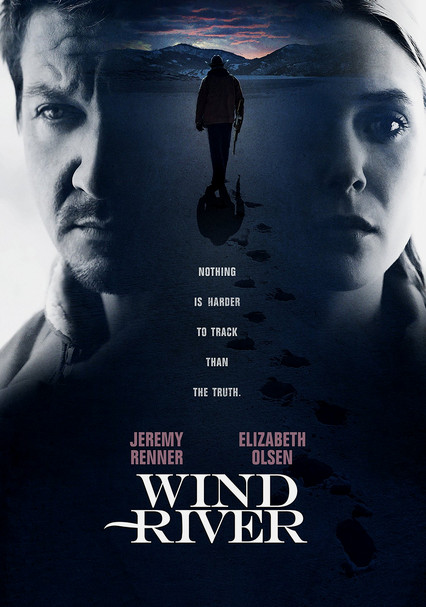Rate The Last Movie You Saw
Solaris (2002) -
Even though I enjoyed Soderbergh's adaptation of Stanislaw Lem's novel much less than Tarkovsky's, I still consider it to be a great movie. Not to discount the performances in the 1972 one, but what the 2002 one lacks in flair, it makes up for in the strength of its performances. Clooney gives one of his best as psychologist Chris Kelvin for how he makes his regrets about lost love Rheya (the also great Natascha McElhone) and his dilemma about Solaris's seemingly too good to be true chance to cope with them believable and palpable. I also like Jeremy Davies' neurotic, Crispin Glover-adjacent performance that he could probably do in his sleep by now as the space station's more right-brained officer as well as Viola Davis' as the all-business left-brained one. I prefer the look and feel of the 1972 movie, but I canít say anything bad about this oneís visuals, which manage to ride a fine line between looking contemporary and futuristic at the same time. As for the scenes with Chris and Rheya, they're just as resonant as those in the original, and while I'm not the biggest fan of flashbacks in general, the accompanying ones that show the evolution of their relationship are efficient and well-timed enough to enhance these scenes rather than detract. While the movie is more exposition heavy than I remember Tarkovsky's being, it's hard for me to criticize this difference since I already know the story. I prefer how the 1972 movie describes the science behind Solaris, but would its approach mesh with this movie's? Maybe not. Again, even though it's leaner, more efficient and not as much of a visual marvel as Tarkovsky's version, Soderbergh's is also bound to make you stare at the screen in awe and devastation as the credits roll.
Even though I enjoyed Soderbergh's adaptation of Stanislaw Lem's novel much less than Tarkovsky's, I still consider it to be a great movie. Not to discount the performances in the 1972 one, but what the 2002 one lacks in flair, it makes up for in the strength of its performances. Clooney gives one of his best as psychologist Chris Kelvin for how he makes his regrets about lost love Rheya (the also great Natascha McElhone) and his dilemma about Solaris's seemingly too good to be true chance to cope with them believable and palpable. I also like Jeremy Davies' neurotic, Crispin Glover-adjacent performance that he could probably do in his sleep by now as the space station's more right-brained officer as well as Viola Davis' as the all-business left-brained one. I prefer the look and feel of the 1972 movie, but I canít say anything bad about this oneís visuals, which manage to ride a fine line between looking contemporary and futuristic at the same time. As for the scenes with Chris and Rheya, they're just as resonant as those in the original, and while I'm not the biggest fan of flashbacks in general, the accompanying ones that show the evolution of their relationship are efficient and well-timed enough to enhance these scenes rather than detract. While the movie is more exposition heavy than I remember Tarkovsky's being, it's hard for me to criticize this difference since I already know the story. I prefer how the 1972 movie describes the science behind Solaris, but would its approach mesh with this movie's? Maybe not. Again, even though it's leaner, more efficient and not as much of a visual marvel as Tarkovsky's version, Soderbergh's is also bound to make you stare at the screen in awe and devastation as the credits roll.
X
Favorite Movies
X
User Lists
Molly's Game: 10/10
Spiderman Homecoming: 6/10
Ocean's Eleven: 10/10
Demon Slayer: 7/10
Spiderman Homecoming: 6/10
Ocean's Eleven: 10/10
Demon Slayer: 7/10
X
Favorite Movies
X
User Lists


Dial M for Murder - This isn't tip top shelf Hitchcock but it's right up there and still very watchable. The featured blonde this time is Grace Kelly and she plays Margot Wendice, a rich socialite type married to ex-pro tennis player Tony (Ray Milland). He's quit touring and found a 9 to 5 job in London in hopes of saving his troubled marriage. Margot has had a past affair with crime fiction writer Mark Halliday (Robert Cummings) and one of their love letters has been stolen amd used to blackmail Margot. The letter plays a pivotal role in the customary Hitchcock intrigue with the usual duplicitous behavior and murderous intent on display. The small cast is exemplary with Kelly as the victimized and vulnerable Margot and Milland as another Hitchcock staple, the dissolute sociopath hiding behind a veneer of refinement. Plus there's also cagey Scotland Yard Detective Chief Inspector Hubbard (John Williams) as the cat (I'm assuming) in the cat and mouse equation.
It's all very sordid and sophisticated and compelling.
I've heard similar sentiments about Mean Streets before, but I've never agreed with them; I mean, sure, it doesn't have the laser-like focus of a Goodfellas (then again, very few movies do), but the messiness of Street's style still ends up working in its favor for the most part, since it's that aspect that gives it the overwhelming sense of energy and life that it possesses:



A Fistful of Dollars - (1964)
For a Few Dollars More - (1965)
The Good, the Bad, and the Ugly - (1966)
...and now I feel left out not having seen Once Upon a Time in the West, where Leone finally got Charles Bronson and and Henry Fonda to star in one of his Westerns. After watching this trilogy, I also want to find out a lot more of the story behind why Sergio Leone made these films, and his reaction to their success.

Blade Runner 2049, 2017
About 30 years after the events of Blade Runner, K (Ryan Gosling) is part of a new breed of replicant. Working for the police, K helps to track down the same generation of rogue replicants from the original film. But after a perplexing discovery at the home of one of his targets, K finds himself chasing down a long-buried mystery, some of which involves Rick Deckard (Harrison Ford).
It still slightly boggles my mind that someone had the nerve to make a sequel to Blade Runner. I mean, I know that money talks, but the potential to create something laughable . . .oof.
So maybe one great wonder of this film is that it isn't terrible, and the other great wonder of it is that it's actually pretty good?
I usually start with positives, but in this case I think I'll start with really the only thing that bothered me: some of the story didn't entirely hold together for me, especially in the final act. I can't be specific because of spoilers, but I'll just say that there were moments that seemed to signal "closure" when there were actually a lot of indicators to the contrary. This is ultimately, for me, not the biggest deal. While the plot does have complex narrative elements, the focus of the story is actually character-driven, and on that front I think that the film was very successful.
So on to the positives, namely the way that the characters were handled.
The world that was established in the previous film already brings with it the loaded question of what is real and even the nature of reality. This theme is carried forward and extended by putting a character front and center who is explicitly questioning the nature of his own life and reality. K knows that he is a replicant, but even within the confines of that fact, who is he really?
It's a neat trick: a character who explicitly introduced as being artificial is forced to question that artificiality. K shrugs off his own memories---sure that they are fake--until he begins to wonder if maybe they aren't. K has an artificial intelligence companion--a woman named Joi--and through the film every moment in which she seems to be acting on her own then circles back to us wondering if it was programmed into her.
The even bigger question, of course, is if it matters. Are emotions that are brought about through manipulation any more or less real?
The look of the film is also gorgeous, somehow marrying the retro-futurism of the original with some truly fabulous landscapes and color schemes.
On the acting front, I thought that the film was pretty strong. Ryan Gosling has sort of an . . . endearing blankness about him (maybe "subdued" is a nicer word?). I think that it serves him well when his characters are set apart from the world around them. Ford slides nicely back into his role as Deckard. The supporting cast are all pretty good, as well.
Overall, I very much enjoyed this film. I look forward to revisiting it some point in the future.
For all the good, I just thought the negative, particularly the final act as you mention, which felt lost and shoehorned and dissonant and probably a few other not-so-great adjectives to me, was heavy enough to bring it down to a movie that I will probably never want to invest that much time in again. Like, if it was an hour shorter - which maybe it should have been - I might go back and re-watch parts for all the good they had but, well honestly, as a film overall the narrative did not work for me. Not the overall narrative and not several individual parts of the narrative. Despite all the things I liked about it, the cinematography, the pacing, the acting, the design... the narrative was just a slog for me.
I guess, to riff off of what you said, despite assembling an impressive filmmaking team, if they were gonna have the nerve to make a sequel to Blade Runner... they should have had a better script.
BLACK NARCISSUS
(1947, Powell & Pressburger)
A film from the Criterion Collection whose number includes the #9 (#93)

(1947, Powell & Pressburger)
A film from the Criterion Collection whose number includes the #9 (#93)

"I remember things before I joined our Order. Things I wanted to forget. I never thought of them until now. I’ve been 21 years in the Order and now they come back to me. I think you can see too far."
Set sometime after World War I, Black Narcissus follows a group of Anglican nuns sent to set up a school and a hospital in the Himalayas on behalf of an Indian General. Led by young and ambitious Sister Clodagh (Deborah Kerr), the group is expected to take over an abandoned "palace" set on a high cliff where one of the former rulers kept his harem.
But their stay there is not without hardship, as evidenced by the above quote from Sister Philippa (Flora Robson). All the other sisters seem to be suffering in some way from their stay there. Most notably, Clodagh spends nights remembering a failed relationship from before she joined the order, and Sister Ruth (Kathleen Byron) seems to be infatuated with Mr. Dean (David Farrar), the intermediary agent between the nuns and the Indian General, while also losing her grip on reality.
Through all the film, directors and co-writers Michael Powell and Emeric Pressburger make a point of emphasizing the impact and effect of the altitude. From the difficulties to reach the palace to its inherent isolation. Most of the more iconic shots of the film feature the nuns standing on cliffs, looking into the vast horizon, perhaps farther than they're willing to look. But their current situation has somehow forced them to look beyond their current life and work, and face things and desires they all had tried to keep repressed, hidden, and under wraps.
Grade:
Full review on my Movie Loot and the PR HOF4
__________________
X
Favorite Movies
X
User Lists
Well, you definitely liked it a lot more than me.
For all the good, I just thought the negative, particularly the final act as you mention, which felt lost and shoehorned and dissonant and probably a few other not-so-great adjectives to me, was heavy enough to bring it down to a movie that I will probably never want to invest that much time in again. Like, if it was an hour shorter - which maybe it should have been - I might go back and re-watch parts for all the good they had but, well honestly, as a film overall the narrative did not work for me. Not the overall narrative and not several individual parts of the narrative. Despite all the things I liked about it, the cinematography, the pacing, the acting, the design... the narrative was just a slog for me.
I guess, to riff off of what you said, despite assembling an impressive filmmaking team, if they were gonna have the nerve to make a sequel to Blade Runner... they should have had a better script.
For all the good, I just thought the negative, particularly the final act as you mention, which felt lost and shoehorned and dissonant and probably a few other not-so-great adjectives to me, was heavy enough to bring it down to a movie that I will probably never want to invest that much time in again. Like, if it was an hour shorter - which maybe it should have been - I might go back and re-watch parts for all the good they had but, well honestly, as a film overall the narrative did not work for me. Not the overall narrative and not several individual parts of the narrative. Despite all the things I liked about it, the cinematography, the pacing, the acting, the design... the narrative was just a slog for me.
I guess, to riff off of what you said, despite assembling an impressive filmmaking team, if they were gonna have the nerve to make a sequel to Blade Runner... they should have had a better script.
And maybe most importantly, I liked that it didn't ruin anything about the original. The way that they extended the stories of all the original characters felt correct to me.
X
Favorite Movies
X
User Lists
I thought that the way that it portrayed both a crisis of self and a crisis of purpose was pretty compelling. But at nearly three hours long, if you aren't vibing with it, I can see not liking it that much. I thought that the visuals and the performances made up for most of the deficits in the writing.
And maybe most importantly, I liked that it didn't ruin anything about the original. The way that they extended the stories of all the original characters felt correct to me.
And maybe most importantly, I liked that it didn't ruin anything about the original. The way that they extended the stories of all the original characters felt correct to me.
I agree with your first paragraph except that the script was problematic enough to drag the movie down for me to a B at best, probably a B-, and now it's a B- that's nearly three hours long and I just don't have the attention span for that.
But I thought whatever was happening with the script and Harrison Ford and Jared Leto and then the big surprise (which wasn't) in that final act was just a huge stumble and enough of one to drag the movie down to that B-. And also, honestly, to mess with the legacy of the first film, not too much, but just a touch.
Before the movie was even over I wondered about Leto's character, did he even really need to be in this movie or was it just that the crisis of self/purpose the film was riding on wasn't enough for the studio or somebody and they had to inject a full-on mustache-twirler late in the game to give a huge exposition dump about a story that didn't make that much sense and wasn't the story of our main character, and then there had to be an action scene with crazy killer replicate lady and the car and the water or whatever the hell that whole mess was, really just straining any good faith I felt the movie had and that I was giving to the movie. I really think that whatever Leto dumped in that one scene was probably not necessary at best and was like an anvil to a man treading water at worst. Because, let's be honest, the beautiful movie was seriously treading water by the 2h 15m mark.
I would certainly agree with a defender of the film that it had to go somewhere (because it really wasn't going anywhere), I just wonder if it really needed to go to a ham-fisted tie-in to the original as explained by The Worst Joker.
the movie or the actors?
But Olsen, I really believe she is special and the strange climate of film in the late 2010s - early 2020s has left people like her in a tricky spot. There were times watching WandaVision where I thought she was at the apex of her craft among young actors, someone who could someday be as good as a Cate Blanchett as I once felt Blanchett could someday be as good as Streep (of course, Tilda Swinton's in there somewhere but I actually thought Swinton was Streep-chasing almost the moment she stepped onto the screen). Anyway, Olsen was great in this film and really showed me who I was watching when Marvel didn't give her much to do.
But it was really just my kinda movie too.
Except when I'm watching Marvel.
But I thought whatever was happening with the script and Harrison Ford and Jared Leto and then the big surprise (which wasn't) in that final act was just a huge stumble and enough of one to drag the movie down to that B-. And also, honestly, to mess with the legacy of the first film, not too much, but just a touch.
WARNING: spoilers below
K was not actually the replicant child then I have to admit that I not only was taken in, I was genuinely shocked when we learned the truth. And even if you see that coming, I think that it's still really powerful to see someone find a sense of purpose and a reason to feel special, only to have that taken away and choose a different path
Before the movie was even over I wondered about Leto's character, did he even really need to be in this movie or was it just that the crisis of self/purpose the film was riding on wasn't enough for the studio or somebody and they had to inject a full-on mustache-twirler late in the game to give a huge exposition dump about a story that didn't make that much sense and wasn't the story of our main character
and then there had to be an action scene with crazy killer replicate lady and the car and the water or whatever the hell that whole mess was, really just straining any good faith I felt the movie had and that I was giving to the movie.
I wish that the film had done a lot more to develop the character of Luv. I think that she begins as an interesting character, but then as the film goes on she just devolves into the stereotypical "cold killer"/right-hand-man to the big bad guy.
I guess my frustrating/slightly-irritating answer is that I was aware of the flaws, but I was enchanted enough by the feel of the film and invested enough in the main characters' arcs that they didn't knock things off the tracks for me.
X
Favorite Movies
X
User Lists
Ya know, I don't think I thought that a movie could still shock me. Especially not a movie from 1991. Shows what I know.
(I'll have more to say on this shocker in a thread I'm about to start, probably tomorrow.)
(I'll have more to say on this shocker in a thread I'm about to start, probably tomorrow.)
Ya know, I don't think I thought that a movie could still shock me. Especially not a movie from 1991. Shows what I know.
(I'll have more to say on this shocker in a thread I'm about to start, probably tomorrow.)
(I'll have more to say on this shocker in a thread I'm about to start, probably tomorrow.)

X
User Lists
Ya know, I don't think I thought that a movie could still shock me. Especially not a movie from 1991. Shows what I know.
(I'll have more to say on this shocker in a thread I'm about to start, probably tomorrow.)
(I'll have more to say on this shocker in a thread I'm about to start, probably tomorrow.)
I'm hoping you're talking about Double Life of Veronique.
I'm afraid you're talking about Rock-a-Doodle.
(In all seriousness, my other dark horse gamble for the film is The Rapture.)
X
Favorite Movies
X
User Lists

In Which We Serve, 1942
This film follows the experiences of a group of naval officers aboard a ship in World War 2. Captained by a man named Kinross (Noel Coward), the ship experiences a horrific attack. As the men float helplessly in the ocean, awaiting rescue, the story of their lives before the war and their experiences on the boat are told in a series of sequences that jump backward and forward in time.
It's generally been my experience that my notions about when certain narrative conventions or innovations came around are almost always off by like 25-75 years. You know, you walk around thinking that a certain kind of subjective camera use is relatively new, only to see that technique in some film from the 30s.
Which is all to say that I really enjoyed the structure of this film, and I think that the structure specifically is what adds some poignancy to this film as well as some much needed tension. The film is pretty unapologetically propaganda intended to celebrate the bravery and sacrifice of the men who served in the navy. But the way that the stories are layered and revealed serves the very necessary role of building emotion outside of pure patriotism.
The film was approved of by the military, and thus they were willing to consult and even provide actual sailors to play roles. The sequences on the ship have both a cinematic epic aspect to them as well as a certain degree of realism. The portrayal, of course, is uniformly positive, with faceless German opponents serving as the only unlikable or antagonistic characters.
I did feel a bit torn about the propaganda aspect when it came to the deaths of some of the sailors. Men dying with smiles on their faces, knowing their families will be proud. There's something a bit too neat and clean about it. Earlier sequences when the surviving sailors are in the water, suffering attacks from German planes, have more of an edge and convey more of the sense of needless death and waste. But it's hard to make an anti-war film and celebrate the participants at the same time, and the film errs on the side of celebrating the sailors.
Coward is a strong lead as the unflappable captain, but the supporting cast also does a good job. There are many sequences showing life at home for the families of the sailors, and these parts are also well acted.
This was an interesting film, and I'd most recommend it based on the look at life aboard a warship and for its interesting structure.
X
Favorite Movies
X


 Check out my podcast:
Check out my podcast: 